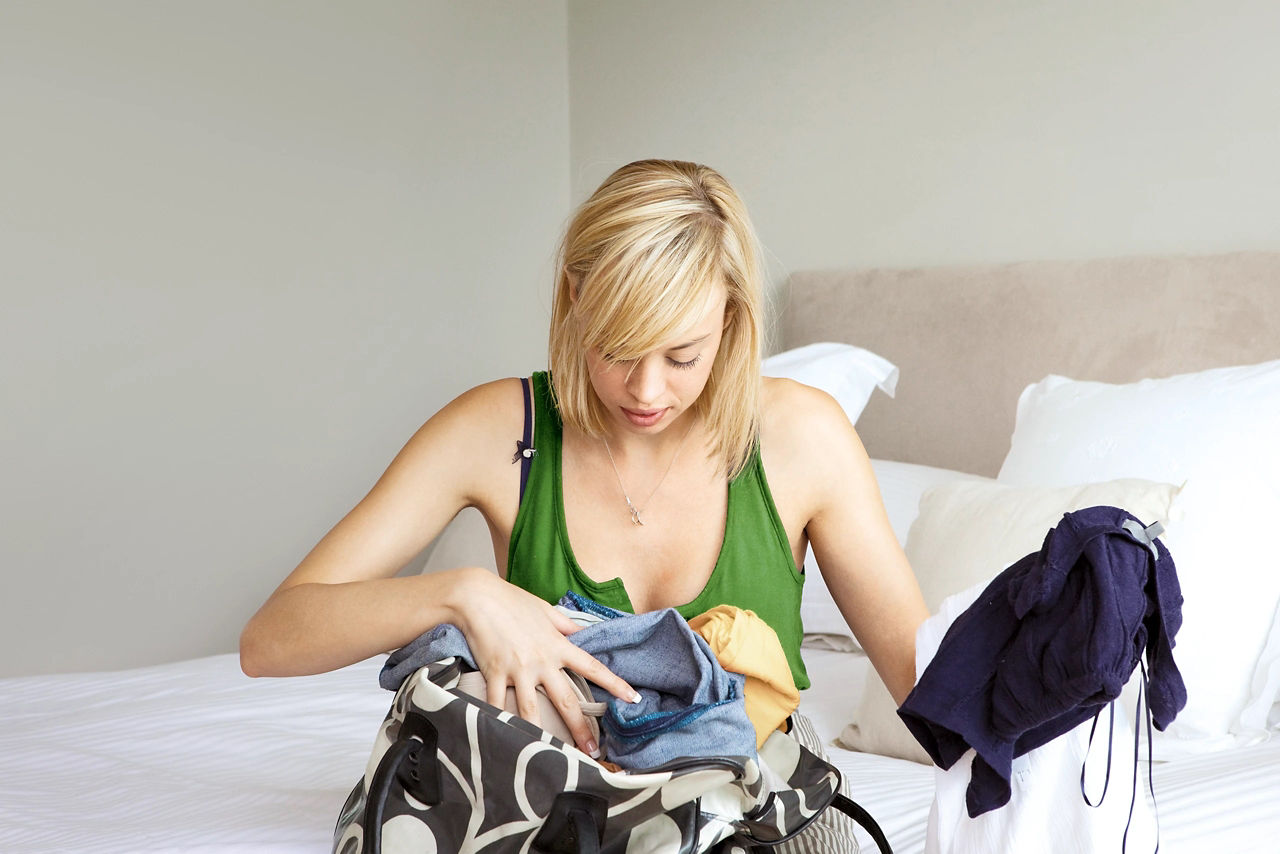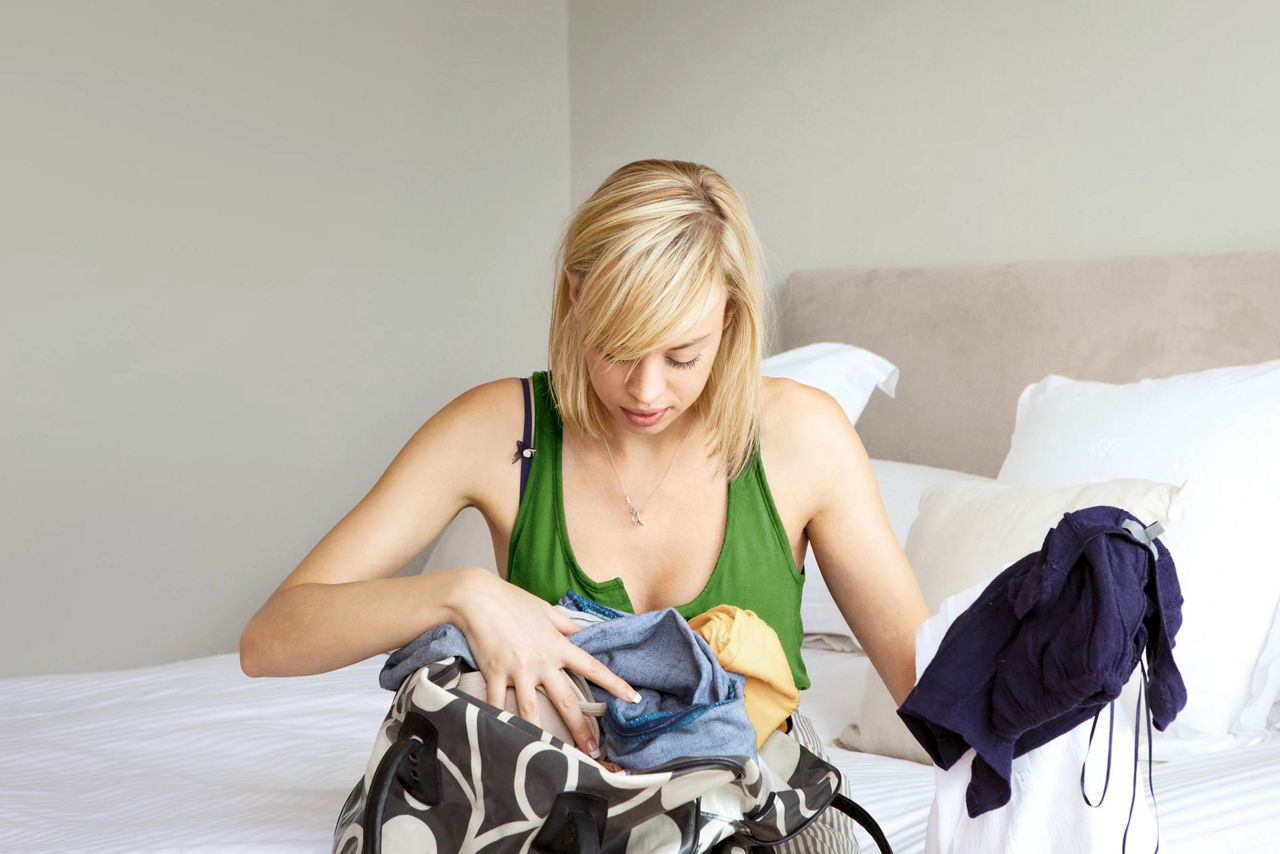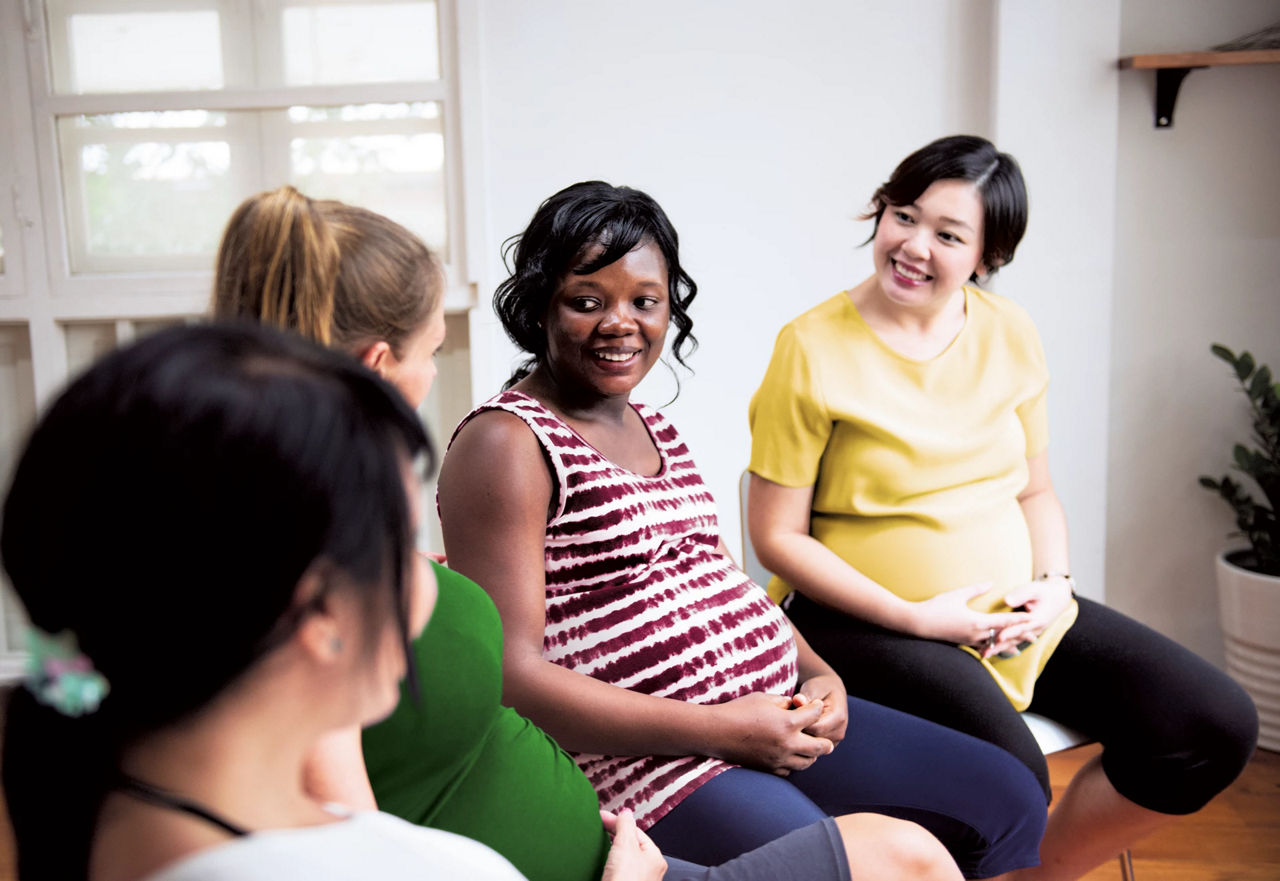Free weaning plan - Register here
Handy hints to help you prepare for labour
If you feel you know what to expect to happen and when, you’ll be far more relaxed and feel more in control of what’s happening. So why not use these ideas to help you do a bit of advance planning?
Find some guidance
- It’s a good idea to attend antenatal classes. They’re the best source of information, preparation and support available; it’s important to attend as many as you can. Bear in mind that not all NHS Trusts offer antenatal classes so check with your midwife or health visitor about the options in your area.
- There are also lots of books and videos available that can help you prepare for getting through labour and birth. If you’re attending antenatal classes, ask your teacher which resources they recommend.
- Your midwife can also give you lots of good advice and will be happy to answer any questions you have about labour and birth.
Choose an environment that’s right for you
- As long as you live fairly close to your hospital or birth centre and you’ve had no complications, you can safely spend your early labour at home if your midwife is happy. You’ll have your privacy, your own bed and bathroom, your own food and snacks and everything that’s comforting to hand whenever you want it.
- Once you do have to go to hospital it’s a good idea to make the environment as homely and comfortable as possible so you feel at ease. Take your birthing ball, comfortable clothes and any personal items you think will help you through labour.
Focus on staying relaxed
- Staying relaxed physically and emotionally will help your body to get into the rhythm of giving birth.
- Being relaxed will also help your muscles to cope better with the stresses involved in getting through labour– if your muscles are tight and you feel apprehensive your body will almost be fighting with itself.
- When you’re relaxed you’ll also be able to breathe more deeply, and that will help to keep your baby calm as they’ll be receiving plenty of oxygen

Work with your body
- Gravity helps your baby to be born. That means if you’re able to, it’s a good idea to stay in an upright position and keep moving around. Being upright doesn’t have to mean standing – you may be squatting, kneeling or leaning on a birthing ball.
- There is no perfect position for you to use during labour– it’s whatever works for you that’s important. You can try swaying your hips or even walking up and down stairs. You may even want to be on all fours or kneeling and leaning over some pillows.
- Making a noise can really help with getting through labour, so don’t bottle it up! Don’t feel embarrassed - think of Wimbledon tennis players. They’re not afraid to release their physical tension with a grunt or a moan and they’re being watched by millions of people!
Find your own ways to feel better
- You can use various pain relief methods that don’t involve the use of drugs. Most delivery rooms will offer you the use of a bath or shower and water kept at body temperature can be very soothing for tired muscles.
- If you feel you want to take the strain off your body choose a deep, warm bath and enjoy the floating feeling.
- Human touch is wonderfully soothing, so ask your birth partner to give you a cuddle if you feel you need one or to hold you during contractions. If you’re suffering from lower back pain ask your partner to give you a gentle massage.
Get support from other people
- It’s been shown that women who have a supportive birth partner have a reduced need for painkillers and have fewer interventions during labour.
- Make sure you talk to your midwife and other medical staff. If anything’s worrying you about what’s happening or if there’s something you don’t understand, just ask. It’s their job to make sure you feel relaxed and confident about what’s going on.
- Watch real mums chat through their own birth stories and share some of the worries they had before labour.

Join our baby club
Ready to stop worrying about what other people think and do what feels right to you? We’ll give you the support you need to follow your instincts and enjoy parenthood to the max:
Helpful emails
Non-judgemental support
Free weaning plan
Tips from real parents
More from pregnancy
Pregnancy topics
Need free advice with a smile? Get in touch with our dedicated Care team.
Ask us a question (8am - 8pm Monday to Friday, 10am - 4pm Weekends)
Messenger
Contact us on Facebook (10am - 10pm, 7 days a week)
Call us
Call us on 0800 977 8880 (8am - 8pm Monday to Friday)
FAQs
Get answers to your most frequently asked questions




